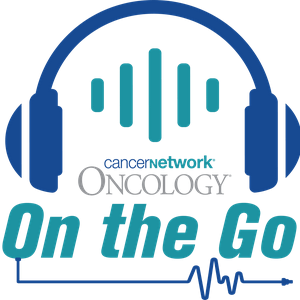S1 Ep157: Fostering The Future of Psychosocial Care With World Psycho-Oncology Day
The International Psycho-Oncology Society (IPOS) deemed April 9th, 2025, the first-ever World Psycho-Oncology Day (WPOD). This day was meant to spread awareness of the importance of prioritizing psychosocial care for patients with all types of cancer as well as to honor Jimmie C. Holland, MD.
Prior to WPOD, CancerNetwork® spoke with Cristiane Decat Bergerot, PhD, BS, MS, a psychologist and the head of supportive care at Grupo Oncoclinicas in Brazil, and a member of IPOS, about the importance of psychosocial care and the impact it has on patients with cancer.
As stated by Bergerot and listed on the official IPOS website, the primary goals of WPOD are as follows: raise awareness, honor Jimmie Holland, engage stakeholders, promote action, and support fundraising efforts.1 These goals are geared towards paying homage to the history of psycho-oncology and pushing for a more advanced future.
“We aim to empower patients, caregivers, and healthcare professionals, fostering a future where psychosocial support is an integral part of oncology worldwide,” Bergerot said.
Psycho-oncology has become more prevalent as a cancer care field since Jimmie C. Holland, MD, worked to help found it in the 1970s. Holland, a “pioneer” of psycho-oncology, was the first ever Chief of Psychiatry Services—a department that was the first of its kind anywhere in the world—at Memorial Sloan Kettering Cancer Center, and a founding member of IPOS.
Bergerot stated that, in her work, she sees that patients who receive psychological support exhibit improved pain management and quality of life. Trials now focus more on end points such as quality of life and patient-reported outcomes, and guidelines have emerged to create standards of care. The National Comprehensive Cancer Network and the American Society of Clinical Oncology each offer guidelines that detail how to manage patient distress as they progress through cancer therapy.2,3 Distress screenings and earlier recommendations for palliative care have also become more standard in treatment.
As for the future, Bergerot highlighted that psychosocial care needs to be more integrated into care as a necessary, rather than optional, component. New developments around the world, however, have created a landscape where telehealth and new research demonstrate the potential to help psycho-oncology grow rapidly.
References
1. World Psycho-Oncology Day (WPOD). IPOS. Accessed April 2, 2025. https://tinyurl.com/43c9rr2c
2. Distress during cancer care. NCCN. 2024. Accessed April 2, 2025. https://tinyurl.com/ycxxvnmt
3. Andersen BL, Lacchetti C, Ashing K, et al. Management of anxiety and depression in adult survivors of cancer: ASCO guideline update. J Clin Oncol. 2023;41(18):3426-3453. doi:10.1200/JCO.23.00293
